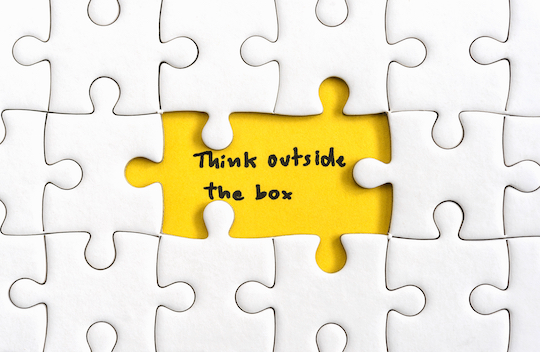What to do with jigsaw puzzles when finished?

All jigsaw players have experienced seeing their feelings of accomplishment and happiness at the end of a challenge being replaced by a “What now?” uncertainty. The harder the challenge, the more intense this uncertainty. They have a beautiful image in front of them that they worked so hard to assemble, but suddenly they are facing the prospect of destruction. This bears the question: what to do with jigsaw puzzles when finished? Here are a few suggestions.
1. Start a collection
Some people collect stamps, others beer glasses. Anyone can start a collection of anything, so why not jump on the bandwagon too? A finished jigsaw puzzle is a reward for your diligence, perseverance, and patience, and just as many athletes hold on to their special trophies, you can also do the same for your puzzles.
Once you have finished a jigsaw puzzle, take it apart gently, put it in its box, and display it proudly on a shelf at your home. The downside of this suggestion is that, if you are a prolific jigsaw player, you will need space. You can always opt to keep only those that you felt were a true challenge to you.
2. Take a picture and create an album
If space is a problem or you simply do not intend to play that jigsaw puzzle again and do not want it cluttering your home, the best alternative is to create a photo album. In a way, you will still be doing a collection of your achievements, but in a much more manageable way. You can either print out the photos and keep them in a physical album or simply keep them in a virtual form.
Not creating an album is also an option, obviously. You can take pictures of your finished jigsaw puzzle and share them on social media or in a jigsaw puzzle forum.
3. Gift it to a dear one
If you have no idea of what to do with jigsaw puzzles when finished but are certain that you do not want to keep them, then you may want to consider gifting them to someone who you think might enjoy them. Do you have friends or family members who like to do jigsaw puzzles? Why not give it to them?
By doing so you would be showing your appreciation for them by gifting them something that was dear to you and that you truly enjoyed. You would also be giving your jigsaw puzzles a new life and an opportunity for them to be once again appreciated in the same way you did.
4. Donate it
If you do not know anyone who might enjoy your jigsaw puzzles the way you did, a good alternative would be to donate them.
Nursing homes, hospitals, prisons, schools, libraries, and many non-profit treatment facilities tend to welcome this type of puzzle game with open arms because of its benefits and the overall entertainment they provide.
There are also charities that, although they would not use your puzzles, could still sell them at their thrift shops to make some money.
Just do a bit of research around your area, and try to find a place that would accept your donation and make good use of your jigsaw puzzles.
5. Glue it and frame it
There are two classic ways to deal with jigsaw puzzles when finished: one is taking them apart and then deciding what to do with them; the other is to glue them and frame them. The second one is as much a natural choice as the first.
On the one hand, you chose a particular jigsaw puzzle because you liked its picture/image. On the other hand, a finished jigsaw puzzle has a special meaning for every player and brings back fond memories of the relaxed times they spent rummaging the pieces.
Thus, framing it and hanging it as if it was a piece of art is a good way to honor all the fun the jigsaw puzzle gave you while creating a customized and unique decoration setting.
6. Challenge yourself
Interestingly, when many put down the final piece and start wondering what to do with the jigsaw puzzles now that it is finished, others immediately start to take it apart and brace themselves for a renewed challenge.
Many players find that jigsaw puzzles can be more challenging on a second or third turn than the first time they gave it a go. Since you have the pieces still very fresh on your mind you start wondering if you did indeed see the piece you were looking for just now or if it is still a memory from the previous game.
Others find it easier the second time around, having already perfected the best strategy to tackle the challenge.
Why not give it a go and discover which one applied to you? You can even time your performance to compare it between attempts and check if you are becoming faster or slower.